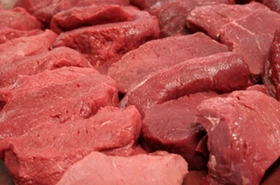 Increasing legislation and red tape are not the only ways to solve the Europe-wide horsemeat scandal; retailers and manufacturers must also remove all affected products quickly and efficiently from the supply chain in order to regain consumer confidence, according to industry experts.
Increasing legislation and red tape are not the only ways to solve the Europe-wide horsemeat scandal; retailers and manufacturers must also remove all affected products quickly and efficiently from the supply chain in order to regain consumer confidence, according to industry experts.Currently, about 50,000t of beef supplied by two Dutch meat processing companies, which was sold across Europe since January 2011, is being recalled by the food safety authorities in the Netherlands amid fears that it may be contaminated with horsemeat.
The Dutch Food and Consumer Product Safety Authority (NVWA) said that it has alerted more than 130 meat processing companies in the country to withdraw the meat they had received from the two Dutch trading companies.
The two companies - Wiljo Import en Export and Vleesgroothandel Willy Selten - are owned by one man, who was previously investigated by food safety authorities.
Wiljo Import en Export and Vleesgroothandel Willy Selten have about 130 customers in the Netherlands, and around 370 customers across European countries, including Germany, France and Spain.
According to the authorities, inspectors evaluating the records of the Dutch firms found that the origin of the meat supplied was unclear, and therefore it was not possible to confirm whether slaughterhouses had followed the correct procedures.
The recall was initiated after it was determined that the customers of these wholesalers were unable to confirm that they have not received beef that may have been mixed with horsemeat.
The recall includes meat dating back to 1 January 2011 up until 15 February 2013.
An NVWA spokeswoman said that the meat being recalled may contain traces of horsemeat, but the agency is not sure at the moment if this is the case.
The agency said that there was no evidence that the suspect meat poses a threat to human health.
Commenting on the recall, Trace One Northern Europe senior vice president Nick Martin said the latest developments in the horsemeat scandal will likely lead to calls for greater legislation of the industry; however, increased legislation and red tape is not the answer.
"One way that the industry could potentially alleviate consumer concerns, however, is by displaying more information on the ways in which products have been sourced and processed and making this clear to customers on their packaging," Martin added.
Supply chain management and software firm JDA Software European vice president John Bailey said the horsemeat controversy in the Netherlands demonstrates that many companies lack visibility across their extended network of suppliers, distributors, manufacturers and producers.
"Retailers must insist that everyone in the supply chain - not only their suppliers but also their suppliers' suppliers - collaborate in order to understand where and how meat products are coming into the supply chain from farm to fork," Bailey added.





